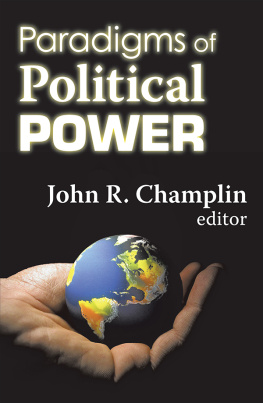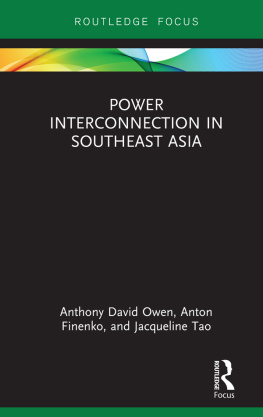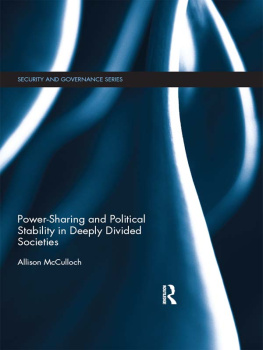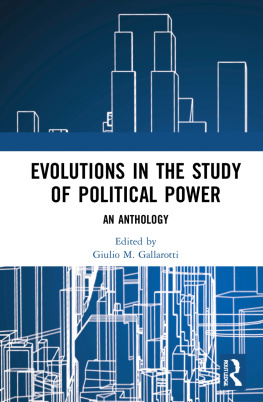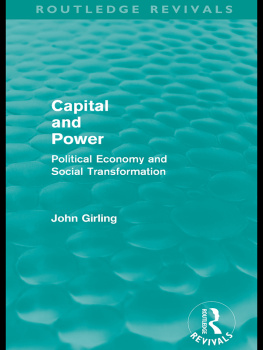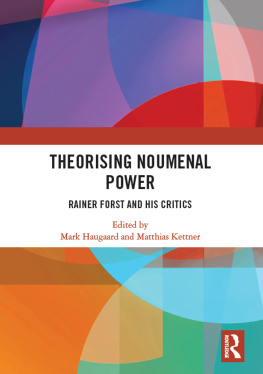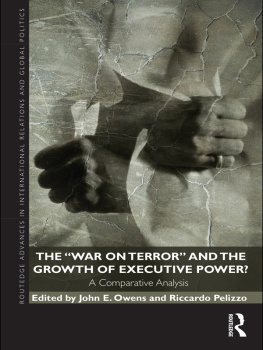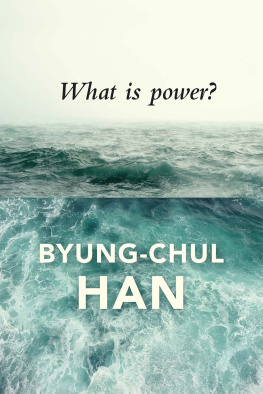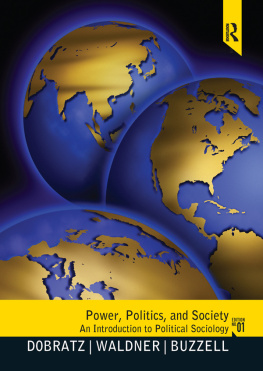First published 1971 by Transaction Publishers
Published 2017 by Routledge
2 Park Square, Milton Park, Abingdon, Oxon 0X14 4RN
711 Third Avenue, New York, NY 10017, USA
Routledge is an imprint of the Taylor & Francis Group, an informa business
Copyright 1971 by Taylor & Francis.
All rights reserved. No part of this book may be reprinted or reproduced or utilised in any form or by any electronic, mechanical, or other means, now known or hereafter invented, including photocopying and recording, or in any information storage or retrieval system, without permission in writing from the publishers.
Notice:
Product or corporate names may be trademarks or registered trademarks, and are used only for identification and explanation without intent to infringe.
Library of Congress Catalog Number: 2008019858
Library of Congress Cataloging-in-Publication Data
Paradigms of political power / John R. Champlin, editor.
p. cm.
Originally published under the title: Power. New York : Atherton Press, 1971.
Includes bibliographical references and index.
ISBN 978-0-202-36286-1
1. Power (Social sciences) I. Champlin, John R. (John Rittenhouse) II. Champlin, John R. (John Rittenhouse). Power. III. Power.
JC330.C525 2008
320.01dc22
2008019858
ISBN 13: 978-0-202-36286-1 (pbk)
This book of readings is one product of a continuing concern with the use and utility of the concept of power in political thinking. It can be compared to a puzzle and, as such, is offered to students of politics: the pieces merit their contemplation, the intellectual activities involved in solving the puzzle (including, perhaps, trimming some of the pieces) should be instructive, and a solution is well worth having.
For such judgment as I have been able to muster, I owe more than I can acknowledge to more teachers and colleagues than I can list; equally unrequitable is my debt to my students in The Study of Power at the Ohio State University. A Fellowship in Political Theory and Legal Philosophy from the Social Science Research Council helped very considerably at the inception of my power projects.
JOHN R. CHAMPLIN
Students of politics may be forgiven for suspecting that controversies presented for their inspection are less controversial than may initially appear, and it usually turns out that the compiler of such controversies holds decided views as to which side has the best of the argument. The editor of this book is no exception to the rule, although he occasionally admits to being quite perplexed. Students are therefore warned to view even this Introduction as part of the controversy; the task of trying to resolve the issues raised throughout these readings is very much theirs.
The term power has been used by generations of men in seeking to make sense of their political experience. Accordingly, attaining a true understanding of power has long been a goal of men who have aspired to replace opinion with knowledge. The word was employed in Platos Gorgias, where Socrates defended the paradoxical claim that the orators and the despots alike have the least power in their cities,
In the past few years, however, the term power has fallen into comparative disfavor. Despite the sweeping claims for power made by such writers as Hans Morgenthau, The central controversy in this book will present the question of whether or not it is advantageous to do serious political thinking in terms of power. Inquiry into this issue will of course lead to other questions. Although a comprehensive and adequate theoretical account of power remains to be written, what such a theory might be like is suggested by the questions it would have to answer, and from each question will rise contributory controversies that enlarge upon the main controversy.
In order to make good its claim to an important place in our political thinking, a theory of power would have to answer at least three questions: (1) What is power? (2) What true statements can we make about power and how can we know that they are true? (3) So what? That is, what are the consequences of our knowledge of power to thought and action? Let us consider what is involved in answering each of these questions.
POWER AND DEFINITION
The question What is power? has often been treated as a request for a definition, and many of the difficulties we have had understanding power go back to yet another question: Is it possible to state a definition of power that will bear the weight of theory that is claimed for the concept?
In attempting to define such a word, one might simply stipulate that he will understand it in a specific way without claiming any validity for the definition. Provided that one is consistent, this procedure is not necessarily wrong, but it raises the unanswerable question of why it is asserted that the stipulation is a definition of power rather than of some neutral term or symbol without the assumptions and connections already implicit in power.
Political scientists who have tried to define power have been said to be offering explications more frequently than barefaced stipulations.
Taking its departure from the customary meanings of the terms, explication aims at reducing the limitations, ambiguities, and inconsistencies of their ordinary usage by propounding a reinterpretation intended to enhance the clarity and precision of their meanings as well as their ability to function in hypotheses and theories with explanatory and predictive force.
Explicators assume that ordinary usage is subject to serious limitations, ambiguities, and inconsistencies, but set out to preserve at least a large part of the terms sense while attempting to improve its scientific usefulness; the explication stands or falls with its utility. The record of explications of power, however, is most paradoxical when contrasted with the explicators intentions: While ordinary discourse about power flows smoothly, scientific studies of power grounded on explications appear full of limitations, ambiguities, and inconsistencies. It might be the case, of course, that while ordinarily we fail to notice our confusion, the discipline of science forces it to our attention; this is typically the complaint of those who would read power out of the vocabulary of political science. It might also be the case, however, that scientific explications of power have missed some important element in the term as it is ordinarily used.
Many, if not most, scientific definers have followed Hobbes (perhaps not knowingly) in attempting to treat power in terms of causation. For the assertion A has power over B, we can substitute the assertion As behavior causes Bs behavior. If we can define the causal relation, we can define influence, power, or authority, and vice versa. While Simon states it quite bluntly, Riker is somewhat more circumspect:

